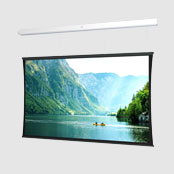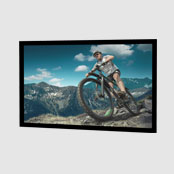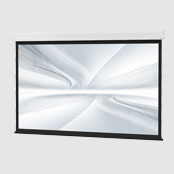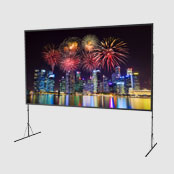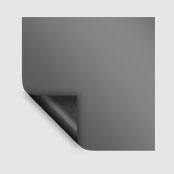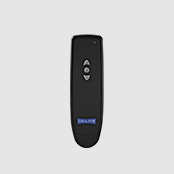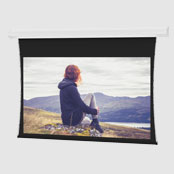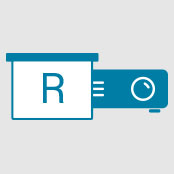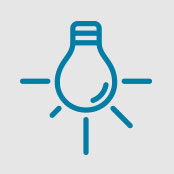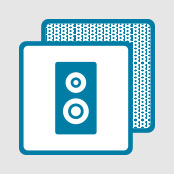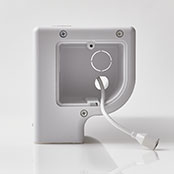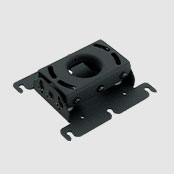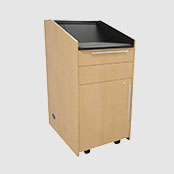Your session is about to expire!
For security reasons, you will be signed out in seconds. Do you want to stay signed in?
Yes, keep me signed in No, sign me outYour session has expired.
For security reasons, you have been signed out.
Do you want to sign back in?
Returning to previous page...
- Audio
-
AV Furniture
- View All
- Acoustic Ceiling Tile Systems
- Acoustic Wall Panel Systems
- ADA-Compliant Wall Tiles
- Carts & Stands
- Collaboration
- Conference Tables
- Consoles & Workstations
- Credenzas
- Easels
- Furniture Power
- In-Surface Power
- Kiosks
- Lecterns
- Modular Power
- On-Surface Power
- Storage
- Table Boxes & Retractors
- Furniture Accessories
- Cables
- Cameras and Video
- Converters, Extenders, & Switchers
- Desktop Connectivity
- Enclosures
- Floor Boxes
- In-Floor Systems
- Mounts
- Networking
- Poke-Thru Devices
- Poles & Columns
-
Power
- View All
- Behind the Display
- Compact Power
- Configurable & Modular Power
- DC Power Distribution
- Horizontal Rackmount Power
- Intelligent Power
- International Power
- In-Wall Storage with Power
- Power Cords
- Power Strips
- Furniture Power
- Outdoor Power
- Series Surge Protected Power
- Table Boxes & Retractors
- UPS Backup Systems
- Vertical Power
- Power Accessories
- Projection Screens
- Raceway & Cord Covers
-
Racks
- View All
- 2 & 4 Post Racks
- Cable Management
- Desktop & In-Cabinet Racks
- Floor Standing Racks
- Hardware & Fasteners
- Installation Time Savers
- Knockdown Racks
- Mobile Racks
- Rackmount Panels
- Pre-Configured Racks
- Power for Racks
- Rackmount Shelves & Storage
- Slide Out Racks
- Thermal Management
- Wall Mount Racks
- Wood Racks
- Rack Accessories
- Storage
- Accessories
Projection Screens
Browse our expansive lineup of electric, fixed frame, interactive, portable, manual, rigid rear projection, screen surfaces – including 16K ready and ambient light rejection, and screen accessories to help you achieve two-piece projection perfection.
Common Projection Screen FAQ's
Looking to learn more about projection screens? Review answers to the following most frequently asked questions.
Learn more about Projection Screens
What is a projection screen?
A projection screen is a surface onto which a projected image is displayed. It enhances the image quality of a projector by providing a flat, consistent surface, which helps improve brightness, color accuracy, and contrast. Projection screens are used in various settings, such as home theaters, classrooms, conference rooms, and auditoriums, to deliver high-quality visual presentations.What are the different types of projection screens?
Projection screens come in various types, each suited for specific environments and applications. Here are some common types:
- Electric: These screens can be raised or lowered automatically using an electric motor, providing convenience and ease of use. They are ideal for offices, conference rooms, houses of worship, and other settings where a screen can be easily concealed when not in use.
- Fixed Frame: These screens are permanently tensioned within a frame, providing a perfectly flat viewing surface. They are best for dedicated installations where the screen does not need to be retracted.
- Interactive: Designed for interactive presentations, these screens work well with interactive projectors and are perfect for classrooms, meeting rooms, and collaborative workspaces.
- Manual: These screens are manually pulled down or rolled up. They are cost-effective and suitable for environments where an electric screen is not necessary.
- Portable: These screens are lightweight and easy to transport, making them ideal for on-the-go presentations and events. They come in various sizes and formats to meet different needs.
- Rigid Rear Projection: These screens are designed for rear projection, where the projector is located behind the screen. They provide excellent image quality and are commonly used in large venues and control rooms.
What size projection screen do I need?
The size of the projection screen you need depends on several factors, including the room size, the distance from the projector to the screen, and the seating arrangement. A general rule of thumb is to have the screen height approximately one-sixth the distance from the screen to the farthest seat. Consulting with a projection screen expert can help you choose the optimal size for your setup.What is the best projection screen material?
The best projection screen material depends on your viewing environment and the type of projector you use. Common materials include:
- Matte White: Screens made from this material offer excellent color accuracy and wide viewing angles, so they are suitable for most environments.
- High Contrast Gray: These screens enhance black levels and contrast, making them ideal for rooms with some ambient light.
- Acoustically Transparent: This type of screen allows sound to pass through, so they are perfect for setups with speakers behind the screen.
- Perforated or Woven Materials: Screens made from these materials are designed to reduce moiré patterns and provide better sound transparency.
- Acrylic: Acrylic materials are commonly used in rear projection screens. They provide a rigid, durable surface that enhances image clarity and brightness.
- Ambient Light Reflecting (ALR): Specifically designed to reject ambient light from sources outside of the projector, these materials maintain image brightness and contrast in well-lit rooms. To learn more, read Parallax Pure & Parallax Stratos: A Quick Guide to Selecting ALR Screens.
- Optical Coated Screens: These screens have a special optical coating that enhances brightness and contrast.
- Tensioned Screens: Made from materials that remain taut and flat, tensioned screens ensure a smooth and uniform viewing surface.
Each material has advantages, so it’s important to consider your specific application and consult a professional to determine the best option for you.
Fixed vs. Retractable Screen: Which is better?
Choosing between a fixed and retractable screen depends on your space and usage requirements. Fixed screens are ideal for dedicated spaces where the screen remains permanently in place. Retractable screens provide flexibility and can be hidden when not in use, making them suitable for multi-purpose rooms.Why invest in quality projection screens?
A quality projection screen is essential for achieving the best visual experience.
High-quality screens:
- Enhance image clarity, brightness, and color accuracy.
- Reduce light reflection and glare for better viewing comfort.
- Offer durability and longevity.
- Provide a professional appearance.

